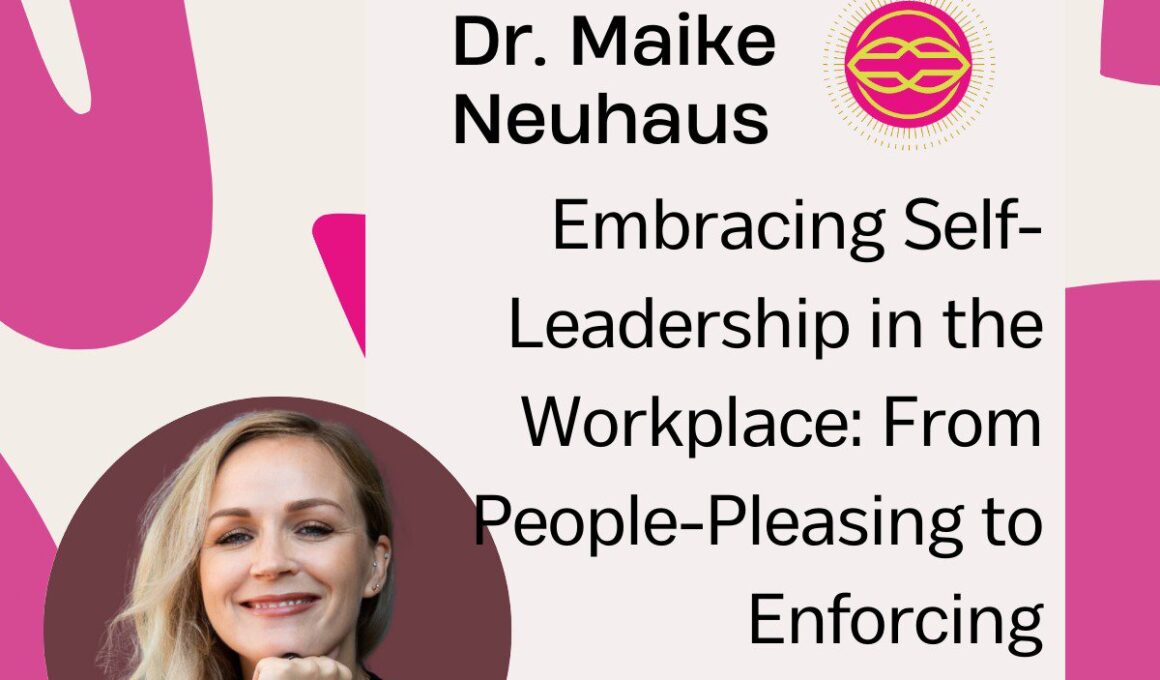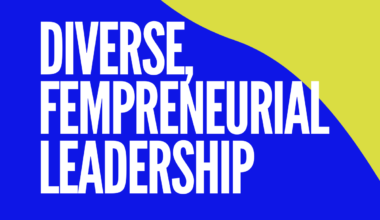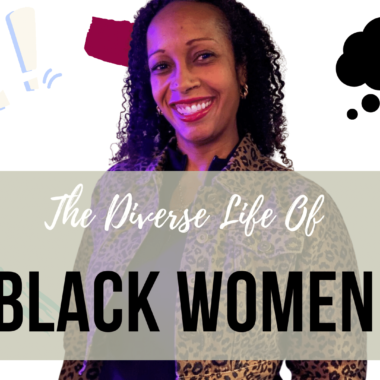By Dr. Maike Neuhaus
Table of Contents
- Kelly's Journey: The Struggle with Constant Criticism
- Gaslighting: A Subtle Manipulator
- Fight, Flight or Fawn: The Hidden Response
- The Toll of Constant Adaptation
- The Road to Recovery: Recognizing and Addressing the Issue
- Assertive Communication: Establishing Boundaries
- Building Resilience: Embracing Self-Compassion
- Making the Tough Decision: Learning and Moving On
- About the author
Every tale of triumph begins with a journey, and in my role as a positive psychology and self-leadership coach, I've witnessed numerous journeys. These narratives often involve strong, resilient women who experience significant personal growth after they clarify their core values, overcome self-doubt, and channel their energy effectively. Sometimes, the thing holding them back isn't self-limitations, but the influences of others. Regrettably, this realization often comes after enduring months – or years – of striving to adapt and meet others' expectations.
One such narrative is that of Kelly.
Kelly's Journey: The Struggle with Constant Criticism
Kelly, a successful 32-year-old marketing manager, eager for fresh challenges, was promoted and transitioned to a new team within her organization. Not long after this transition, she found herself under consistent critical scrutiny from her new boss. His criticisms ranged from her choice of words in reports, to verbal hesitations in team meetings, and even her approach to team management. Being highly conscientious, Kelly acknowledged the feedback, apologized and adjusted her behavior.
However, her changes seemed perpetually insufficient for her boss, a man with a paradoxical nature – stern and critically demanding at work, yet known for his good-hearted nature outside the professional arena. Unfortunately, the impact of his unrelenting work-related criticisms took a significant toll on Kelly. As the criticisms escalated to public belittlement, Kelly's self-confidence was shattered, leading her to seek help.
With teary eyes and a heavy heart, Kelly approached me. She had repeatedly adapted her behavior hoping to satisfy her boss, only to realize she had lost touch with her authentic self in the process. The continuous doubt and confusion she experienced were indicative of gaslighting (Ziarnik & Gubi, 2020).
Gaslighting: A Subtle Manipulator
Gaslighting is an insidious form of psychological manipulation that is often hard to recognize, especially for the person being gaslighted. The manipulator plants seeds of doubt, causing the victim to question their memory, perception, and sanity (Sarkis, 2017). Gradually, the victim starts feeling less capable, less credible, or less valuable than they truly are, leading to persistent self-doubt and eroding self-confidence.
Kelly found herself on this precarious path, growing increasingly self-critical and less confident. Yet, she didn't connect these feelings to her boss's behavior. Instead, she internalized the criticisms, erroneously believing that she could improve the situation by changing her behavior. Over time, Kelly began experiencing an instinctual response to her boss's criticism – not the typical 'fight or flight' reaction, but a 'fawn' response.
In her bid to adjust and conform to her boss's expectations, Kelly embodied a behavior pattern known as the 'fawn' response, a concept identified by Pete Walker (2009) in his work on Complex PTSD. This survival mechanism involves the victim trying to appease or placate the abuser to avoid conflict or further criticism.
The 'fawn' response often leads to people-pleasing behaviors, as the individual attempts to make themselves more likable or less 'problematic' to the perceived abuser (Lisak & Beszterczey, 2007). This constant pursuit of external validation often results in neglecting personal needs and wants, ultimately causing the individual's self-worth to become dependent on the perceived abuser's approval, blurring personal boundaries.
Kelly’s consistent attempts to adapt and 'improve' were clear manifestations of this self-sacrificing behavior. She was bending over backward to meet her boss's ever-changing expectations, neglecting her own needs and intuition in the process.
The Toll of Constant Adaptation
Kelly's pattern of continuous adaptation and self-neglect significantly impacted her emotional well-being. She found herself in a constant state of stress and anxiety, always worrying about her next 'mistake.' This chronic stress began affecting her work performance, personal relationships, and overall quality of life.
More worryingly, Kelly was losing sight of her identity. She was so absorbed in fulfilling her boss's expectations that she lost sight of her own values and goals. Her professional life had devolved into a relentless quest for approval, leaving her feeling drained and unfulfilled.
The Road to Recovery: Recognizing and Addressing the Issue
Recognizing the issue is the first step toward recovery. In our coaching sessions, we focused on identifying the patterns of behavior that were causing Kelly distress. Kelly gradually started recognizing the toxicity in her work environment and the damaging impact of her boss's behavior.
She came to understand that her boss's unconstructive criticism and public belittlement were neither normal nor acceptable. Realizing she was being gaslighted and that her constant self-doubt was not a personal failing but a result of this psychological manipulation, she took the critical step towards recovery.
Assertive Communication: Establishing Boundaries
Establishing boundaries is essential to maintain healthy relationships. One useful tool for communicating boundaries is the “SBI-BI model,” which stands for Situation-Behavior-Impact, Behavior-Impact (London, 2003). This model offers a non-confrontational approach to deliver feedback, focusing on behaviors rather than the person, allowing for constructive communication.
Using the SBI-BI model, Kelly learned to express her feelings and concerns more clearly. For instance, she learned to assert, “Yesterday in the meeting (Situation), when you critique my presentation publicly (Behavior), I felt belittled and undermined (Impact). If you could discuss such matters privately with me in the future (Behavior), it would be more constructive and beneficial to me (Impact).”
The next step was to re-build her resilience.
Building Resilience: Embracing Self-Compassion
While establishing boundaries is crucial, building resilience is equally important. Self-compassion is a potent tool for building resilience. It involves treating oneself with kindness and understanding, recognizing that making mistakes is part of the human experience (Neff & Germer, 2013).
Through self-compassion, Kelly learned to forgive herself for perceived failings. She learned to treat herself with the same kindness and understanding she would extend to a friend in a similar situation.
This shift in perspective helped Kelly to stop blaming herself for mistakes, thereby reducing stress and boosting her self-confidence. Unfortunately, despite her repeated efforts to communicate her boundaries and improve the situation, she was unable to regain her confidence and realise her potential in her workplace.
Making the Tough Decision: Learning and Moving On
Eventually, Kelly made the tough decision to leave her job and join a different company. While she was excited about this fresh start, she also felt a twinge of regret for not addressing the inappropriate behaviors at the onset. “I wish I had spoken up and made my voice heard right from the start. I just had no idea what was happening – I thought it was me.”
Of course, Kelly’s story is not unique. Many individuals, particularly women, find themselves in similar situations, dealing with gaslighting and falling into the trap of the 'fawn' response. Kelly’s journey serves as a powerful reminder that recognizing the signs of gaslighting and understanding the dangers of the 'fawn' response are crucial steps toward self-empowerment. Should you ever find yourself in a situation like Kelly’s I hope you’ll remember this story and make your voice heard right from the start.
Dr Maike Neuhaus supports individuals and organisations understand what humans need to flourish, so they can create realise their potential and create impacts that excite them.
She does so through public speaking, coaching and educating. Dr Maike is a psychologist specialised in self-leadership as well as positive and coaching psychology; and, a researcher and lecturer at a top 50 university.











